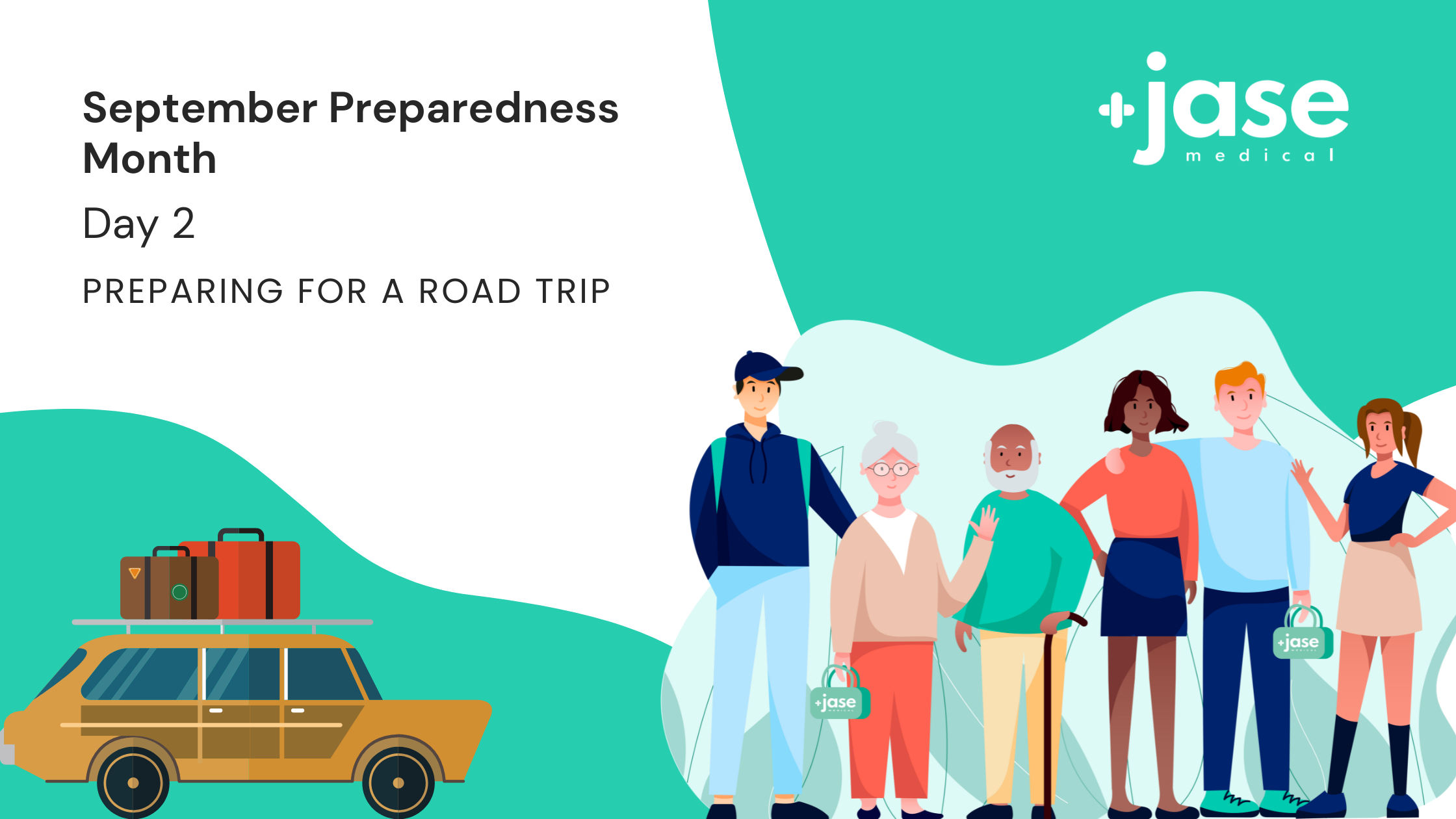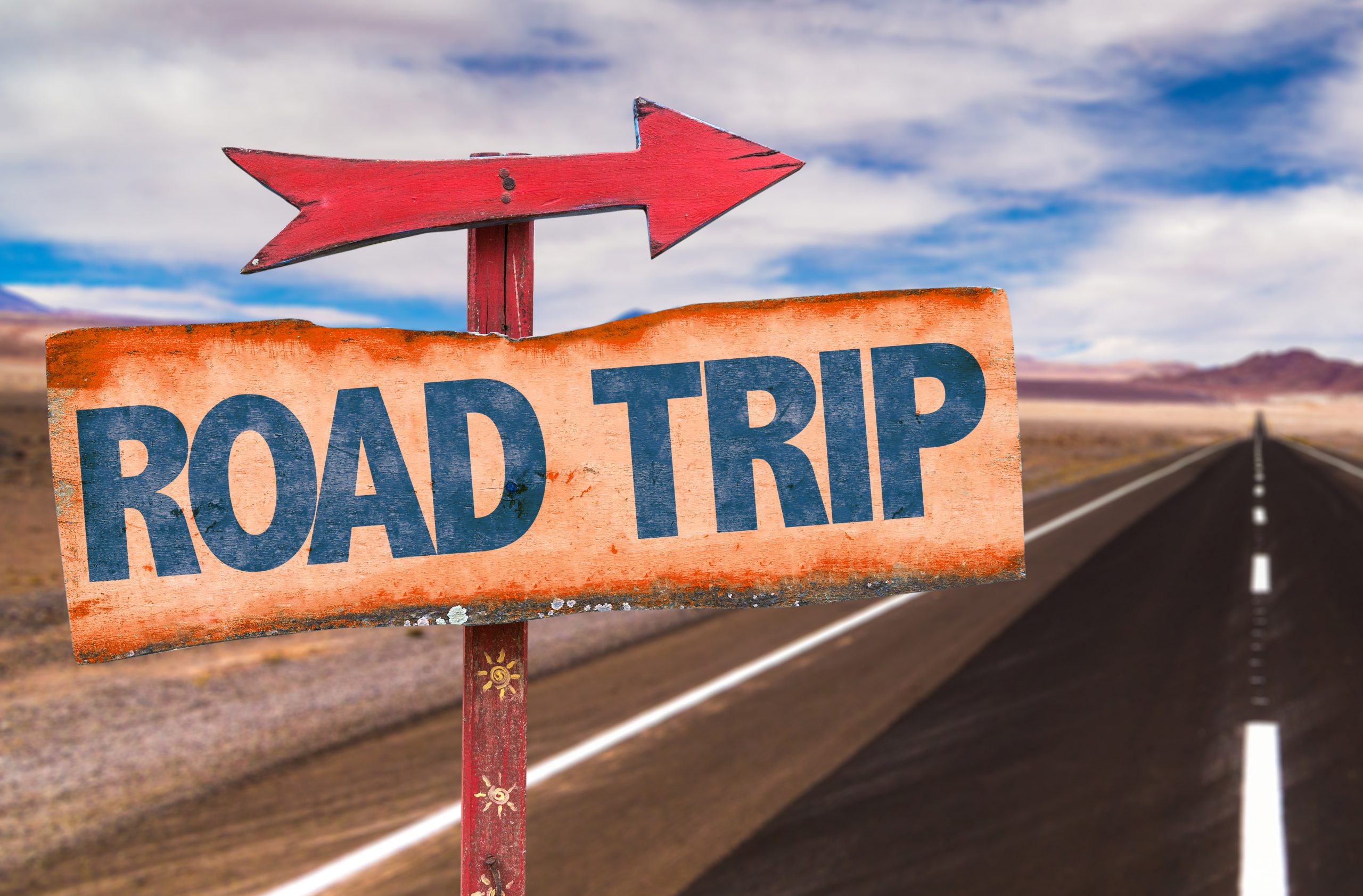

Travel plans over the Labor Day weekend? Do you have the fluids in your car topped off, the tire pressure checked, bags packed for the road? How does your first aid bag look – is it stocked and ready for emergencies you may encounter on your trip?
Preparedness doesn’t just stop at the home while we are out and about our usual day, from running errands to long distance travel, medical emergencies can happen anytime. Knowing what to do and having the necessary tools in the event of an emergency could be the difference between life and death.
Traveling solo in your vehicle presents challenges not encountered when using public transportation such as air travel and cruise ships. These types of travel have basic and advanced first aid and crew members who are trained to handle medical emergencies.
Whether you travel by motorcycle, car or RV medical emergencies can arise and there could be no one to help. Rural areas where there is no cellphone service, inclement weather preventing emergency personnel to respond are just a few need to manage an emergency on your own.
Getting ready for your trip
On the road you could encounter any number of different types of emergencies. From a car crash to a cardiac event to food poisoning from eating stale food from your cooler, the wide array of medical emergencies is almost endless.
- Planning and obtaining necessary supplies
- Not only having medication and supplements packed, have on hand extra water for everyone in case of a breakdown. At least 2-16 ounce bottles of water per person is desirable.
- If you have Jase cases for your family, be sure to bring them along. These medicines could prevent a costly trip to the emergency room if you or your family become ill on the road.
- If anyone traveling with you is diabetic have juice or other sweet snacks in case of low blood sugar.
- Have electrolyte drinks or mix for water in case of extreme heat and electrolyte loss
- Keep warm blankets, towels, flashing flares and a well equipped first aid kit for the car.
- Open and insect the contents of your first aid kit. Discard and replace any used, contaminated, or expired items in it.
- Check your first aid medications. Do you have medication to stop diarrhea, nausea, vomiting, over the counter pain meds? Allergy meds? Bug repellant? Creams for burns? A warm blanket to prevent shock? Flashlights with batteries? A distress whistle if car ends up off the road and can’t be seen from the road? Shovel and gloves, a container of cat litter for traction if you find yourself on icy pavement and are unable to obtain traction is invaluable.
- Make sure you have extra clothing and outerwear in case of inclement weather.
- A physical map in case you are unable to navigate with GPS (GPS isn’t reliable in rural areas)
- Let someone you know the route you are planning on taking and your estimated ETA. Contact them once you have arrived at our destination.
- This is just a short list of items that you may want to consider when venturing out of town.
With a little forethought and planning you will arrive at your destination safely. Have a safe and fun Labor Day holiday!
Lifesaving Medications
Recent Posts
Keeping you informed and safe.
FAQ: Our most commonly asked questions about Jase
If you’re considering Jase, chances are you’ve paused and thought, “This makes sense, but I still have a few questions.”You’re not alone. Here are the most common ones we hear, answered plainly. Is this really doctor-prescribed? Yes. Every Jase order is reviewed by a...
Medical Readiness: What Really Kills First
When Disaster Strikes, It’s Not Hunger or Thirst That Takes the First Lives In every disaster zone, from hurricanes in the Caribbean to war zones in Ukraine, the pattern is the same. People worry about food and water, but it’s infection that kills first. A small wound...
Exploring Dr. William Makis’ Hybrid Orthomolecular Cancer Protocol: Focus on Ivermectin and Mebendazole/Fenbendazole
Exploring Dr. William Makis’ Hybrid Orthomolecular Cancer Protocol: Focus on Ivermectin and Mebendazole/Fenbendazole *Disclaimer: This article is for educational purposes and does not constitute medical advice. Always seek professional guidance.* In the evolving...



